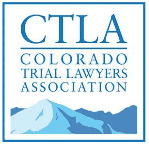Request a Free Consultation | No Upfront FeesSe Habla Español
970-225-2190 |
1-800-664-3151
Colorado Personal Injury FAQs
Attorneys Serving Ft. Collins, Boulder County, and Weld County Answer Questions About Personal Injury Cases
Do I have the option of choosing my own doctor in a personal injury case?
Yes, you can always choose your own doctor in an auto accident personal injury claim. However, if you are in a preferred provider organization (PPO) or Health Maintenance Organization (HMO), then you may have to treat “in-network” (choose from a list of doctors provided by your insurance company) so that insurance covers your medical bills.
Are there limits on the amount of damages I can receive in a personal injury case?
The answer to this question depends on the type of claim you file and the type of damages you seek to recover. In Colorado, there has been tort reform legislation in areas including, but not limited to, medical malpractice, punitive or exemplary damages, and other non-economic damages. For answers on your specific case, please contact Hoggatt Law Office, P.C..
How do I pay an attorney for a personal injury lawsuit?
Generally, the Fort Collins Lawyers at Hoggatt Law Office, P.C. will collect a contingency fee which is a percentage of the amount of damages we collect on your behalf. This contingency fee is typically one-third and will be spelled out specifically in a written contingency fee agreement. You will only pay the contingency fee if damages are collected. Hoggatt Law Office, P.C. may front any expenses incurred in pursuing your lawsuit. Hoggatt Law Office, P.C. may seek reimbursement for those costs regardless of the outcome of your case. In certain cases, Hoggatt Law Office, P.C. may be able to recover your attorney’s fees from the person you sue or their insurance company.
If a loved one dies due to another person’s fault and leaves a family behind, can the surviving dependents recover damages for the loss of earnings?
In many cases, the surviving family members of a deceased person can recover compensation for the loss of earnings. Determining if an individual(s) is actually a dependent of the deceased person may be an issue that requires legal advice.
Should I provide a recorded statement?
As a general rule of thumb, it is not a good idea to provide a recorded statement to an insurance company representative. You are not obligated to provide a recorded statement. If you are on medication, or if you are not feeling sharp mentally, you definitely want to avoid recorded statements. Remember that anytime you speak with an insurance company representative over the phone, your conversations are likely being recorded. Anything you say in a recorded statement can be used against you in the future. If you do participate in a recorded statement, make sure you provide completely accurate information. Do not ramble. Do not guess or speculate when answering questions. If you do not know the answer to a question, simply state “I do not know the answer,” “I do not recall,” or “I will have to get back to you” after you have investigated.

970-225-2190 | 1-800-664-3151
1403 W. 29th St.,
Loveland, Colorado 80538
Greeley:
3835 W. 10th Street, Unit 100,
Greeley, Colorado 80634|
970-460-2220
Longmont:
353 Main Street, Suite A,
Longmont, Colorado 80501|
720-575-0509
Boulder:
4450 Arapahoe Avenue, Suite 100,
Boulder, Colorado 80303|
303-997-2018
Ft. Collins:
123 North College Ave., Suite 160,
Fort Collins, CO 80524|
970-225-2190
Cheyenne:
109 E. 17th St., Suite #6148,
Cheyenne, WY 82001|
307-227-4051 (By Appointment Only)















